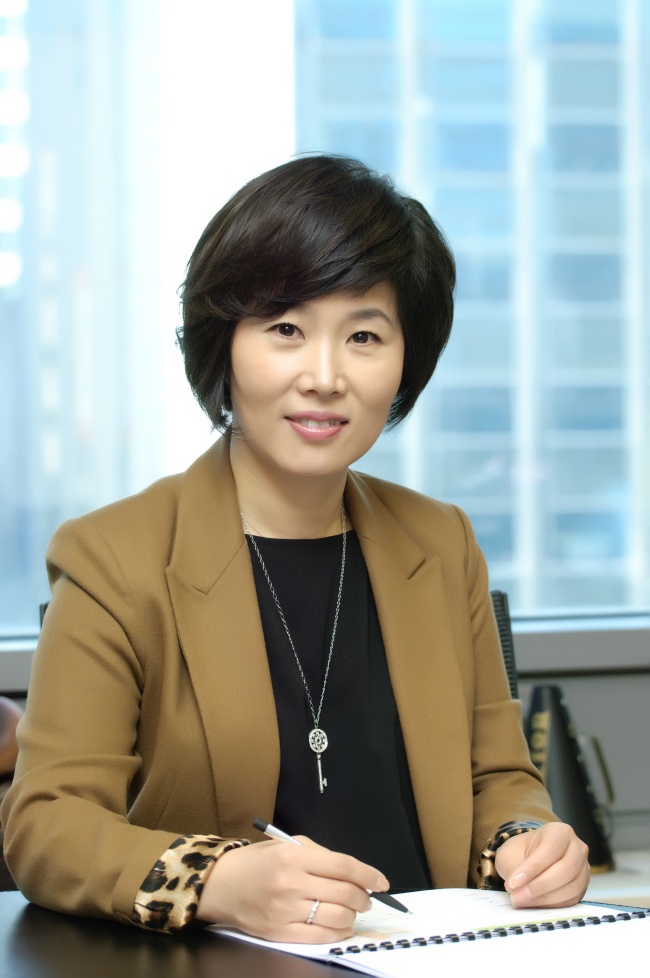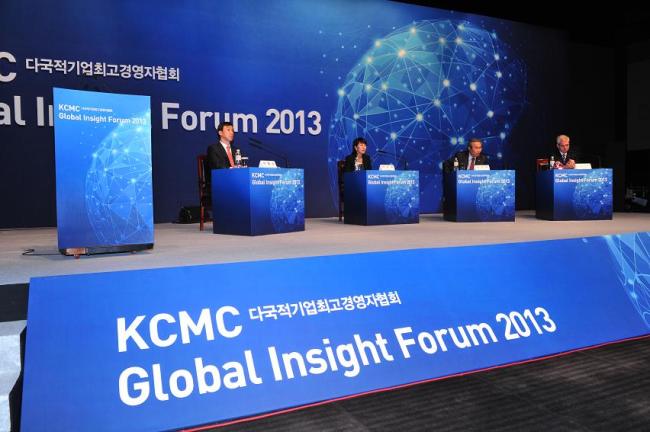 |
Lee Haeng-hee, chairperson of the Korean CEO’s Association of Multinational Corporations |
The two most important questions often facing the leader of an organization have been the same throughout time: What is now and what is next? The answers now may be more important than ever at a time when the global economy is gaining momentum for recovery after a five-year downturn.
As to the biggest change in the business environment compared with the past, CEOs of Korean units of multinational companies were of one voice ― the “speed and volatility” of change.
“It is not an exaggeration to say that most CEOs today are at war in a rapidly changing and highly competitive environment,” said Lee Haeng-hee, chairperson of the Korean CEO’s Association of Multinational Corporations.
“As an instance of the speed and volatility of change, Nokia took 70 percent of the Indian communication market in 2010, but only three years later, Samsung Electronics leads the market with a 47 percent market share,” she said.
 |
CEOs of U.S. multinational companies lead the “Growth Through Innovation” session during the 2013 Global Insight Forum, organized by the KCMC at the Shilla Hotel on Oct. 30. (KCMC) |
Lee’s comments were made at the 2013 Global Insight Forum, an annual event of the KCMC, held at the Shilla Hotel on Oct. 30 under the theme “The Game Has Changed. Own the Future.”
“Two major factors to drive new business environments are explosive middle-class growth of emerging markets, including Asia, amid the global economic downturn and rapid proliferation of communications and technologies,” said Lee Dong-soo, managing director of Pfizer Pharmaceuticals Korea.
The Boston Consulting Group added three drivers of change: aging societies, a different global resource environment and uncertainties arising from different kinds of change.
“Among the five factors, I believe aging society will be the most significant driver of change,” said Rhee Byung-nam, a senior partner of Boston Consulting Group.
KCMC’s Lee said the speed and volatility of change had increased the burden to be shouldered by CEOs.
“(In a game changing era), CEOs must pay keen attention to the industrial and macroeconomic policies of different regions; understand and fulfill the social perceptions and expectations placed upon corporations and executives; capture the trends of big data and technology convergence; and carry the burden of driving continuous, solid growth,” said Lee, who also leads Corning Korea.
“Simply put, we need a new paradigm for management.’’
As to winning strategies in a game-changing era, the BCG partner said CEOs have to constantly explore growth in new areas and new markets, and connect the Internet and real world to create new opportunities.
The half-day CEOs’ forum was divided into three regional sessions for in-depth discussion: Asia Pacific, the U.S. and Europe.
The Asia Pacific session dealt with rising competition and cooperation between growing regional business giants like Samsung and multinational corporations.
In the Europe portion, CEOs of European companies shared insight on the outlook for the prolonged economic recession in the region, while executives in the U.S. session shared the recent experiences of their own companies in their search for new growth engines on the path to economic recovery in the U.S.
By Seo Jee-yeon (
jyseo@heraldcorp.com)









